Georgia: Police use water cannon, tear gas and stun grenades to disperse protesters opposing ‘foreign agent’ bill
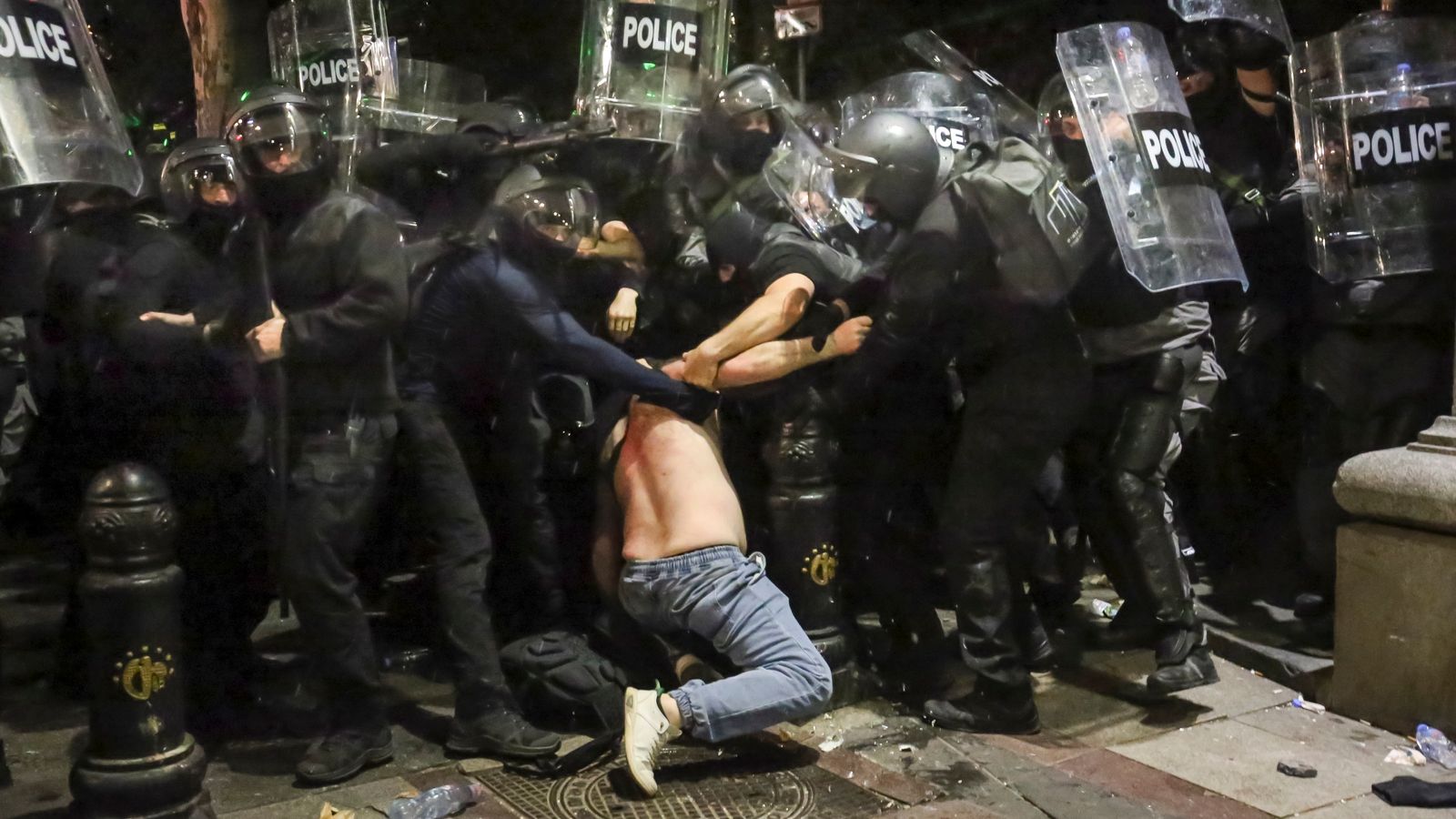
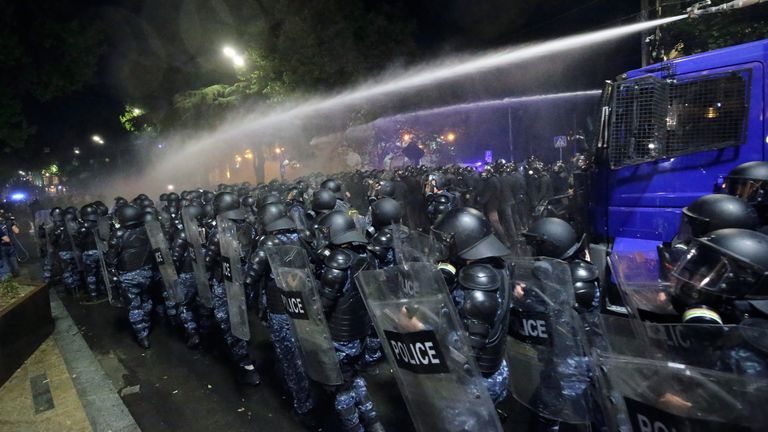
Police in Georgia’s capital have used water cannon, tear gas and stun grenades against crowds outside the country’s parliament protesting against a bill the opposition says aims to crack down on press freedoms.
The legislation being debated by parliamentarians will require media and non-commercial organisations to register as being under foreign influence if they receive more than 20% of their funding from abroad.
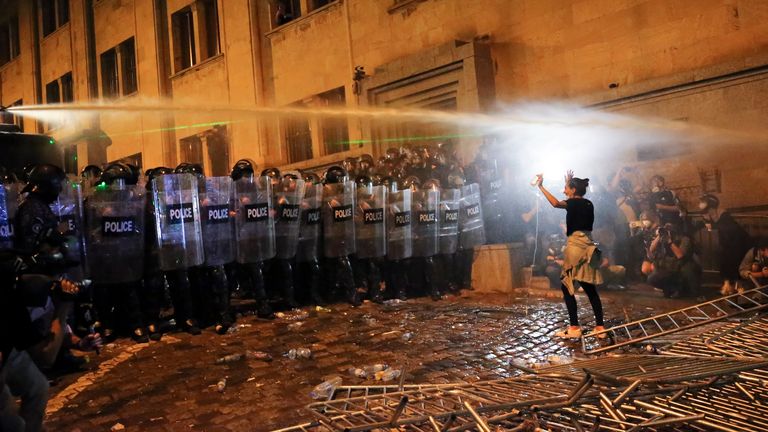
Thousands of demonstrators gathered in the streets of Tbilisi on Tuesday to oppose the legislation.
Clashes erupted between security forces and protesters as they faced tear gas, water cannon and stun grenades.
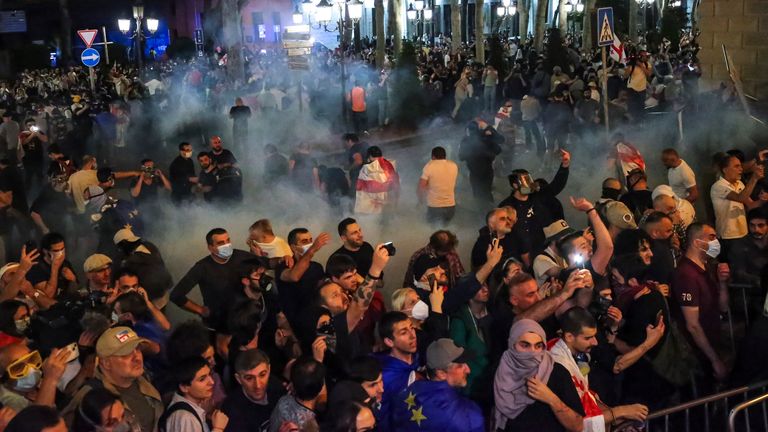
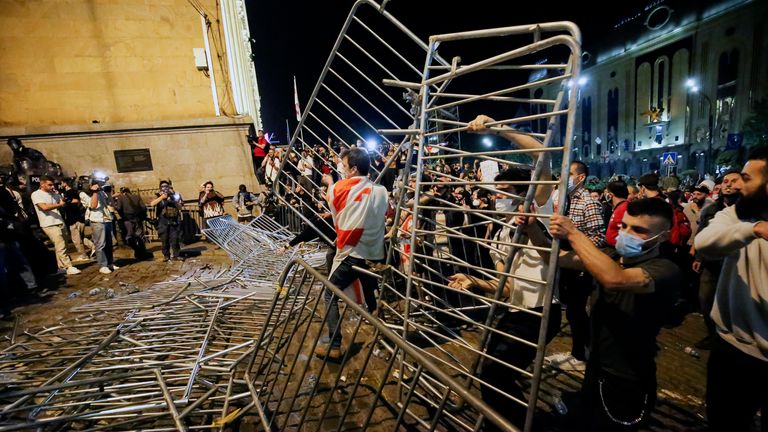
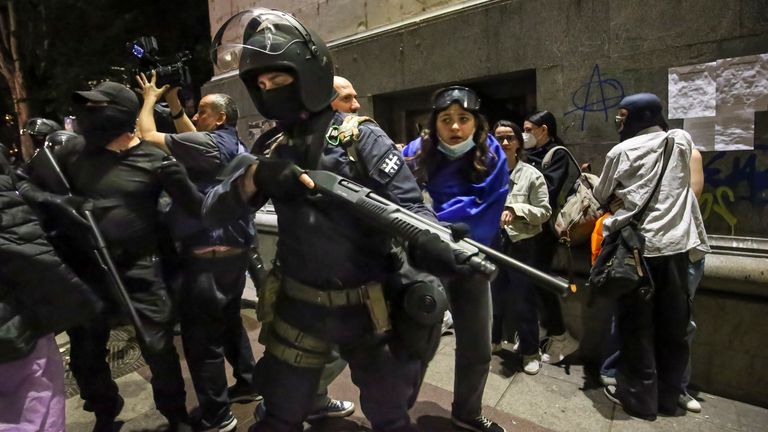
Reuters eyewitnesses saw some police officers physically attack protesters, who threw eggs and bottles at them, before deploying the tactics to force crowds from outside the parliament building, the news agency reported.
After being dispersed, thousands continued to block Tbilisi’s main Rustaveli Avenue, barricading it with cafe tables and rubbish bins. Some shouted “slaves” and “Russians” at police.
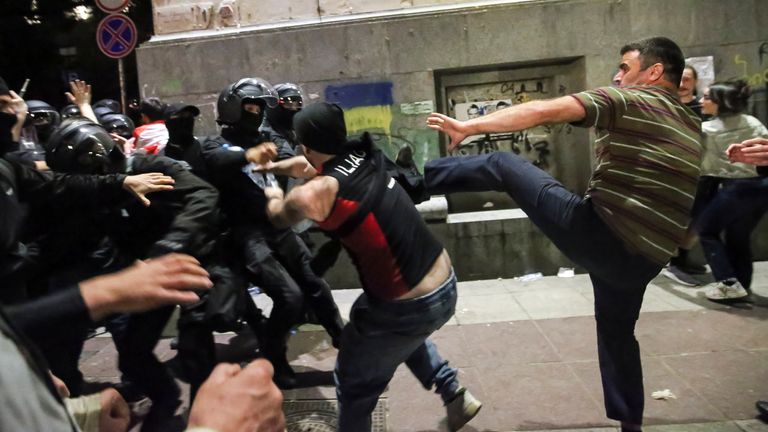
Levan Khabeishvili, the leader of Georgia‘s largest opposition party, the United National Movement, posted an image on X with his face bloodied and sporting a black eye.
A party official told Reuters that Mr Khabeishvili was beaten by police after disappearing from central Tbilisi.
Georgian President Salome Zourabichvili, who is opposed to the bill and whose powers are mostly ceremonial, said in a post on X the crackdown had been “totally unwarranted, unprovoked and out of proportion” and that the protests had been peaceful.
Advertisement
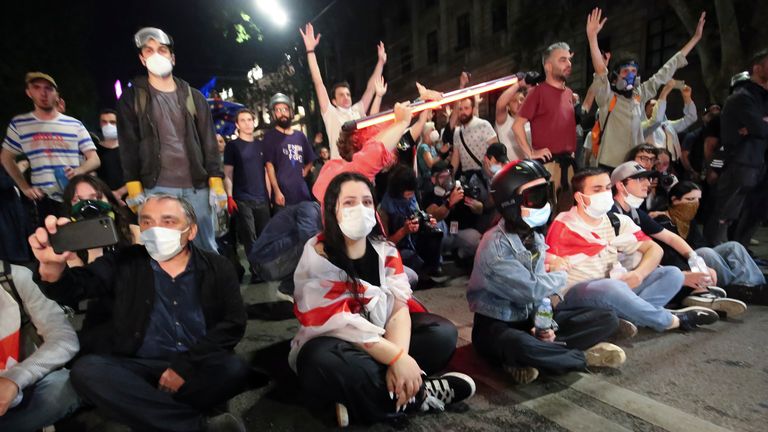
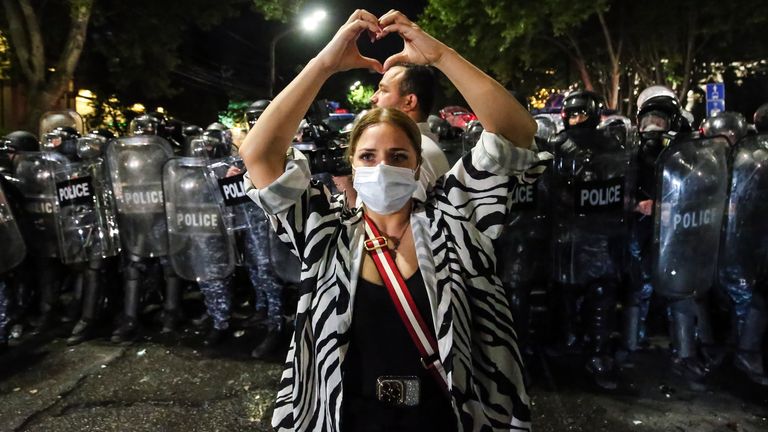
The bill has heightened political divisions, setting the ruling Georgian Dream party against a protest movement backed by opposition groups, communities, celebrities and the figurehead president.
It is viewed by the opposition as authoritarian and bearing a resemblance to Russian anti-independent media legislation.
Please use Chrome browser for a more accessible video player
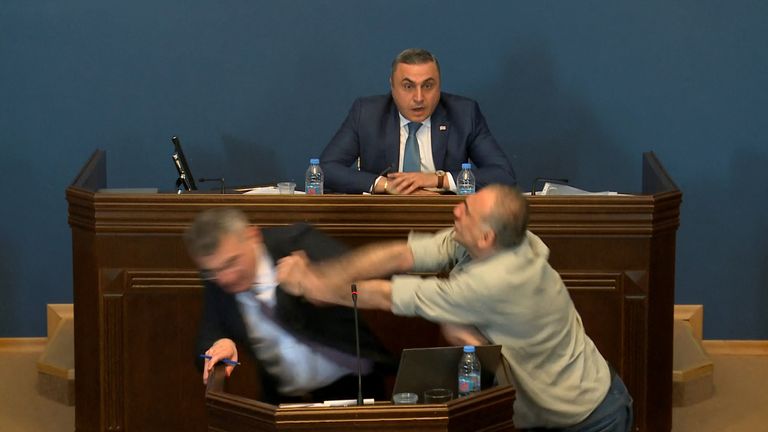
0:44
Politicians brawl in parliament
Critics have labelled the divisive bill “the Russian law”, comparing it to Moscow’s “foreign agent” legislation which has been used to crack down on dissent there.
Read more from Sky News:
Boy dies after bouncy castle blows away
Police raid university to break up protest
Parliament endorsed the bill in the first reading earlier this month. It must pass two more readings before becoming law.
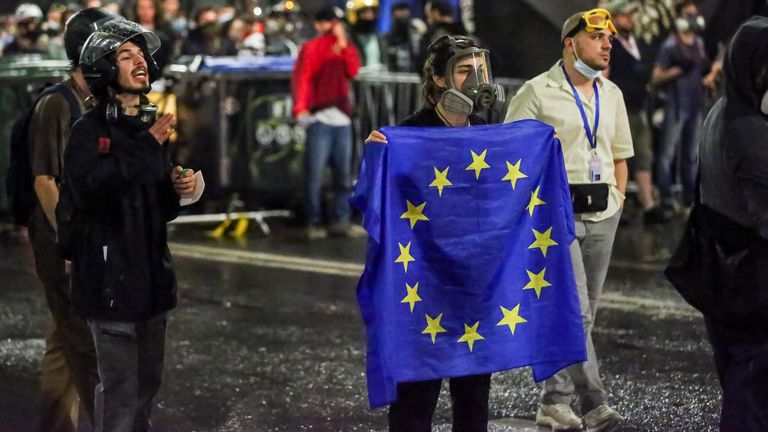
Those opposed to the legislation see it as an impediment to Georgia’s long-sought prospects of joining the European Union.
EU officials have said it could halt Georgia’s progress towards integration with the bloc.